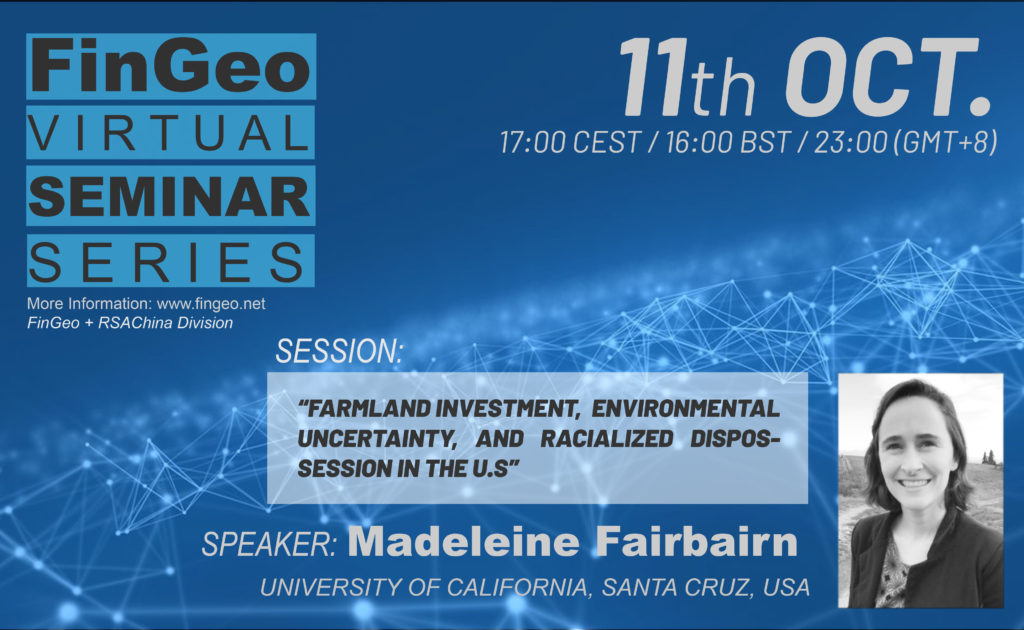Register for free aqui

In recent years, financial institutions have evinced a growing demand for agricultural properties. This presentation explores some of the ways in which this phenomenon is currently playing out in the U.S. First—and primarily—I will present research which examines how investors seek to “render land investible” (Li 2014) in spite of the environmental uncertainty associated with climate change, groundwater depletion, and changing water regulations. This research involved a case study from California’s Cuyama Valley, where the Harvard University endowment purchased 8000 acres of dry rangeland for use in creating an irrigated vineyard. This case, I argue, reveals how investors may be able to turn environmental uncertainty into an advantage. In this case, the material and legal uncertainties of groundwater access provided investors with a potentially lucrative opening to assert their preferred land imaginaries and improve their property values. Second, I will briefly discuss some ongoing research on farmland investment in the Mississippi Delta. Investors are increasingly flocking to the Delta, which some bill as being climactically similar to California but without the water scarcity issue. This region of the US, however, has a unique geography of racialized dispossession, which shapes the opportunities for acquiring land and for contesting those acquisitions.
Madeleine Fairbairn, PhD, is a sociologist and associate professor in the Environmental Studies Department at the University of California, Santa Cruz. She studies the political economy of agriculture, including the financial sector’s growing interest in farmland and, more recently, the Silicon Valley agri-food tech sector. Her first book, Fields of Gold: Financing the Global Land Rush was released in July, 2020 from Cornell University Press.
Chair: Stefan Ouma, University of Bayreuth, Germany
Stefan Ouma holds the Chair of Economic Geography at the Department of Geography at the University of Bayreuth. His research interests lie in a theoretically and empirically informed economic geography of globalization and development, drawing primarily on insights from heterodox economics, political ecology, and post- and decolonial work. He has published on political economy and ecology of global commodity chains and the financialization of land and agriculture. His research foci include Ghana, Kenya, Tanzania and New Zealand.
